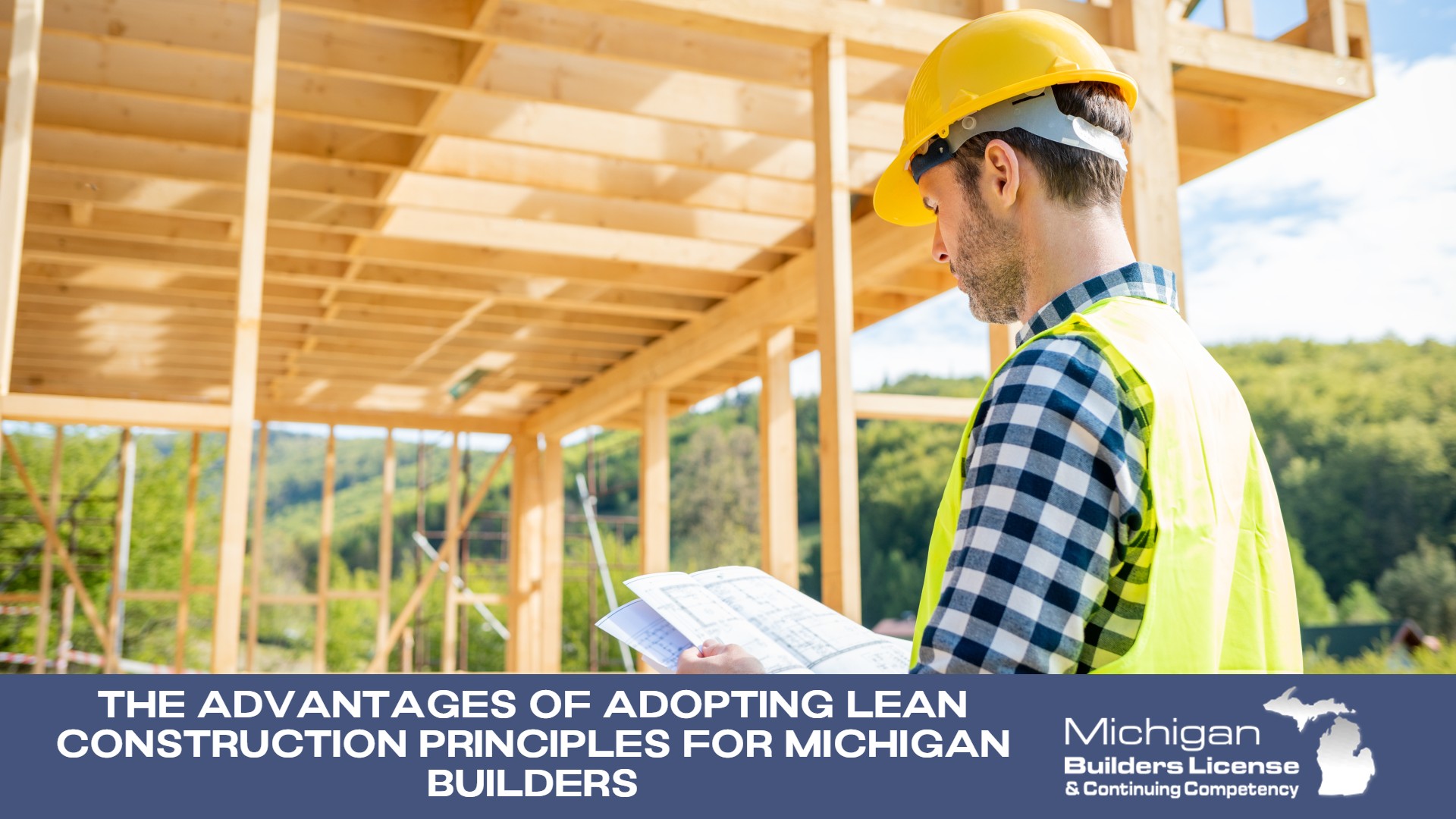In the competitive construction industry, Michigan builders are constantly seeking ways to enhance efficiency, reduce costs, and deliver quality projects on time. One approach that has gained traction across the industry is the adoption of Lean Construction Principles. Rooted in the idea of maximizing value while minimizing waste, Lean construction offers a range of practical benefits that can significantly improve the way builders manage projects.
Let’s explore how Lean Construction can benefit your business and help you streamline operations.
What Is Lean Construction?
Lean construction is a project management philosophy that focuses on improving efficiency by identifying and eliminating waste throughout the construction process. Waste doesn’t only refer to physical materials but also time, energy, and resources that are unnecessarily consumed. The goal of Lean construction is to create more value for clients with fewer resources, leading to improved project outcomes.
The core of Lean construction revolves around identifying eight types of waste, often remembered using the acronym DOWNTIME:
- Defects: Mistakes that require rework.
- Overproduction: Producing more than is needed or before it is needed.
- Waiting: Delays due to lack of materials, information, or approvals.
- Non-used Skills: Underutilizing team members’ skills and abilities.
- Transportation: Unnecessary movement of materials.
- Inventory: Excess materials that are not immediately needed.
- Motion: Unnecessary movement of people on-site.
- Energy: Wasting resources like fuel, electricity, or labor.
By understanding these categories of waste, Michigan builders can take a systematic approach to eliminate inefficiencies that drain valuable time and resources.
The Benefits of Lean Construction for Michigan Builders
Adopting Lean principles in construction can lead to a host of advantages that benefit both the builder and the client. Here are some key ways it can improve your construction projects:
- Improved Efficiency and Productivity
One of the main benefits of Lean construction is the ability to complete projects more efficiently. By streamlining processes and reducing the amount of time workers spend on unnecessary tasks, you can shorten project timelines without compromising quality. This allows for faster project turnaround, enabling you to take on more work and increase profitability.
- Cost Reduction
Lean construction helps builders cut costs by minimizing material waste and optimizing the use of labor and equipment. For instance, eliminating overproduction and excess inventory means fewer wasted materials, while better planning reduces delays and the need for rework. By minimizing unnecessary expenses, your profit margins improve, making your business more competitive.
- Enhanced Collaboration and Communication
Lean construction promotes collaboration among all stakeholders, from project managers to workers on-site. Tools like the Last Planner System—a central concept in Lean construction—encourage teams to plan together and make real-time adjustments to avoid delays. Improved communication between teams reduces errors and ensures that everyone is working towards the same goal.
- Better Quality Control
Since one of the primary goals of Lean construction is reducing defects and rework, quality control becomes a natural outcome of adopting these principles. By identifying potential issues before they arise and focusing on continuous improvement, you can ensure higher-quality outcomes for your clients, resulting in fewer callbacks and greater client satisfaction.
- Sustainability and Environmental Impact
Reducing waste isn’t just good for your business—it’s also good for the environment. By using resources more efficiently and generating less waste on the job site, Lean construction contributes to more sustainable building practices. For Michigan builders, where environmental concerns are becoming more important, adopting Lean principles can also attract eco-conscious clients.
Lean Construction in Action: Practical Steps
Implementing Lean construction doesn't have to be overwhelming. Start small by focusing on one or two key areas where you see the most waste. Some practical steps include:
- Organizing the Job Site: Use the 5S System (Sort, Set in order, Shine, Standardize, and Sustain) to keep the workplace organized and free of clutter. This simple strategy helps reduce unnecessary motion and improves efficiency.
- Collaborative Planning: Involve all team members in the planning process. By engaging workers, supervisors, and suppliers, you’ll have a better understanding of potential challenges and avoid bottlenecks.
- Continuous Improvement: Lean construction encourages a mindset of ongoing learning and improvement. Regularly review completed projects to identify where processes could be refined and apply those lessons to future jobs.
Conclusion
For Michigan builders looking to enhance their project management processes, adopting Lean construction principles offers tangible benefits. From improving efficiency and reducing costs to enhancing collaboration and sustainability, Lean construction can transform the way you operate, making your business more competitive and profitable in the long term.
Michigan Builders License offers the Michigan 6-Hour Lean Construction Course. This online course introduces Lean Construction principles to help reduce waste and improve efficiency. Learn the 8 wastes of DOWNTIME, master the 5S System for organization, and explore key planning tools like the Last Planner System and the P4 Planning System. Plus, receive the Lean Construction Leaders 282-page E-book to deepen your understanding and apply Lean strategies to your projects. Click here to learn more.
By focusing on reducing waste and maximizing value, Lean construction not only improves your bottom line but also ensures that you're delivering higher quality work for your clients—creating a win-win situation for everyone involved.




